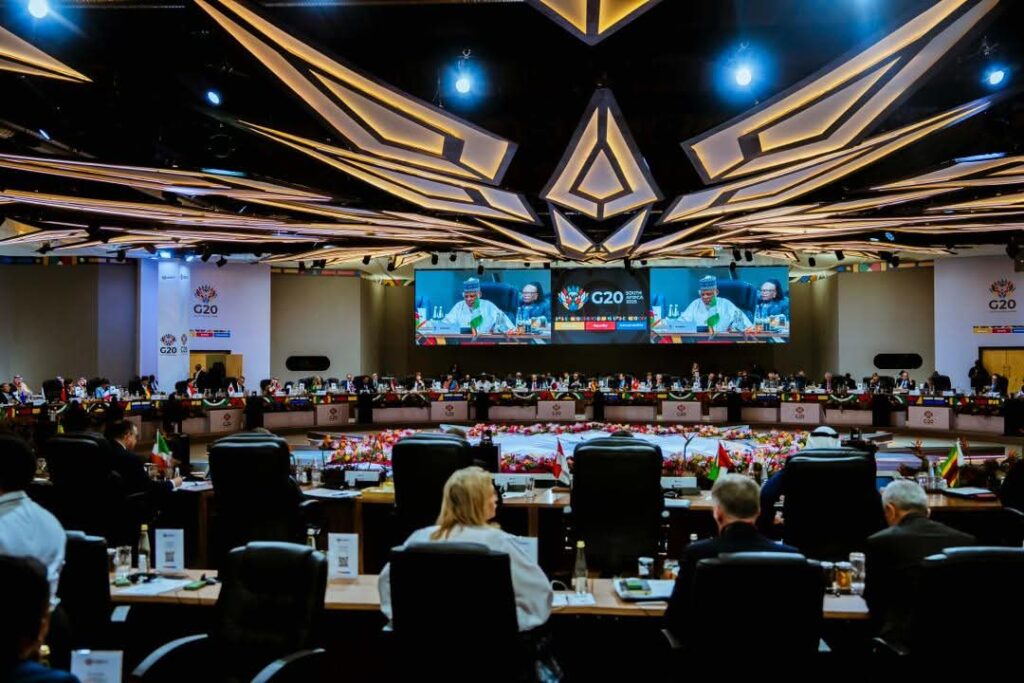President Bola Ahmed Tinubu has urged world leaders to adopt a global framework that guarantees value addition for communities hosting critical minerals in Nigeria and across Africa, stressing that resource-rich regions must not remain impoverished.
Speaking at the Third Session of the 2025 G20 Leaders’ Summit in Johannesburg, South Africa – and represented by Vice President Kashim Shettima – President Tinubu said critical minerals represent a strategic opportunity for Africa’s economic and industrial transformation.
He warned that the mere possession of mineral resources does not guarantee shared prosperity, noting that responsible extraction, transparency, and accountability are essential to ensuring wealth reaches local communities.
“Nigeria calls for a global framework that promotes value addition at the source, supports local beneficiation, and ensures that communities hosting these resources are not left behind,” he said.
The President added that as the world undergoes green and digital transitions, decent work must remain central to economic policy.
He stressed that under the Renewed Hope Agenda, Nigeria is investing in future-ready skills, including digital literacy, vocational training, and entrepreneurship, to equip young people for emerging opportunities.
On artificial intelligence, President Tinubu said Nigeria fully supports the establishment of global ethical standards that prioritize safety, transparency, and equity.
He cautioned that AI must uplift societies rather than deepen inequality or displace workers, calling for deliberate partnerships between developed and developing nations to ensure equitable participation in the AI economy.
“We must ensure that AI becomes a tool of empowerment, not exclusion; of job creation, not displacement,” he said.
In a separate address, also delivered by Vice President Shettima, President Tinubu urged the G20 to reform global financial structures and frameworks to resolve persistent debt crises and enhance trade inclusivity.
He argued that many existing multilateral systems were designed for a different era and are no longer suited to the financial realities developing countries face.
He maintained that global financial flows must be governed more fairly and that debt sustainability must become a core priority for the G20.
“Only a more equitable and more responsive system can manage global financial flows with fairness and meet the needs of all nations,” he stated.
Tinubu further urged the G20 to ensure Africa transitions from being a supplier of raw materials to a continent of industrial capacity, innovation, and dignified work.





